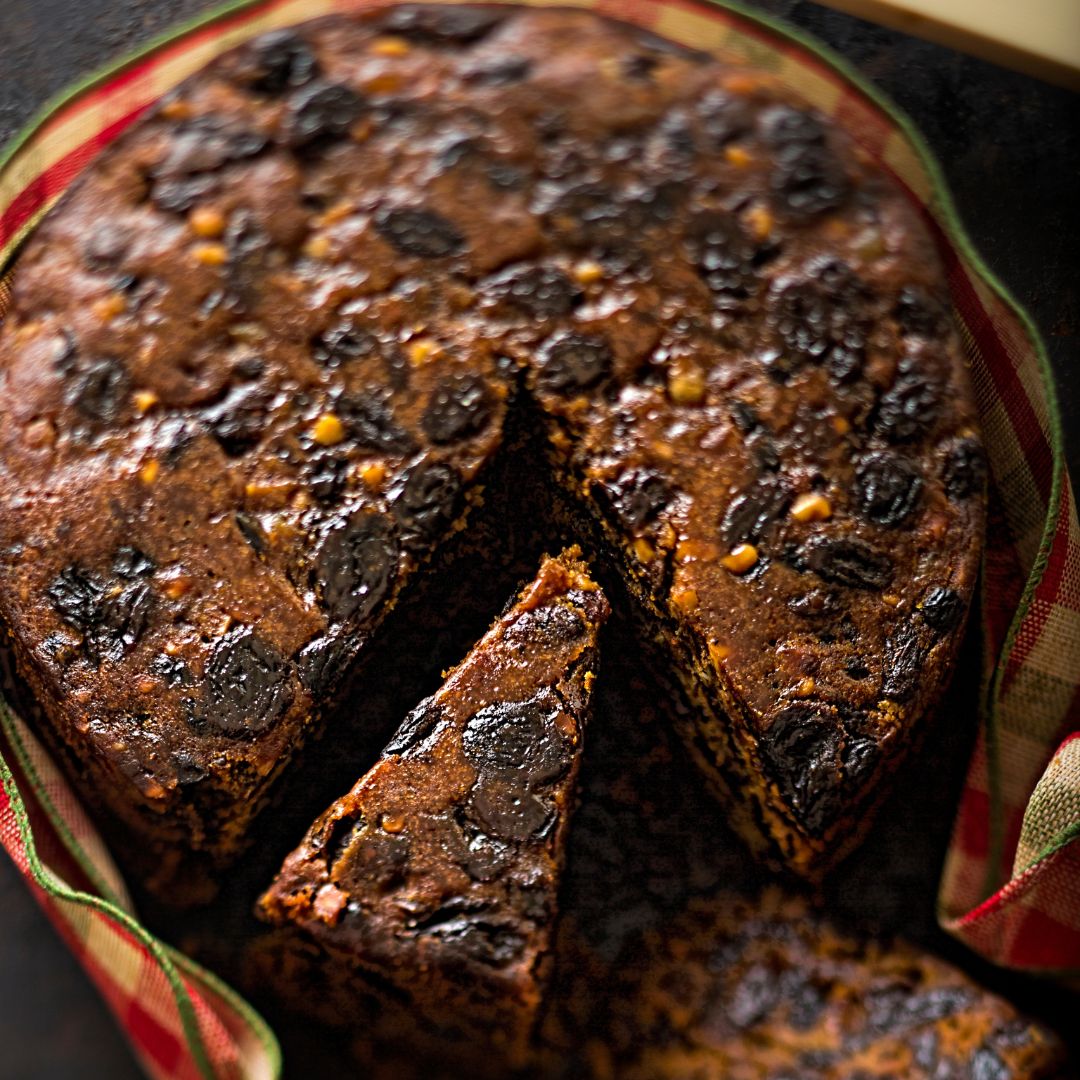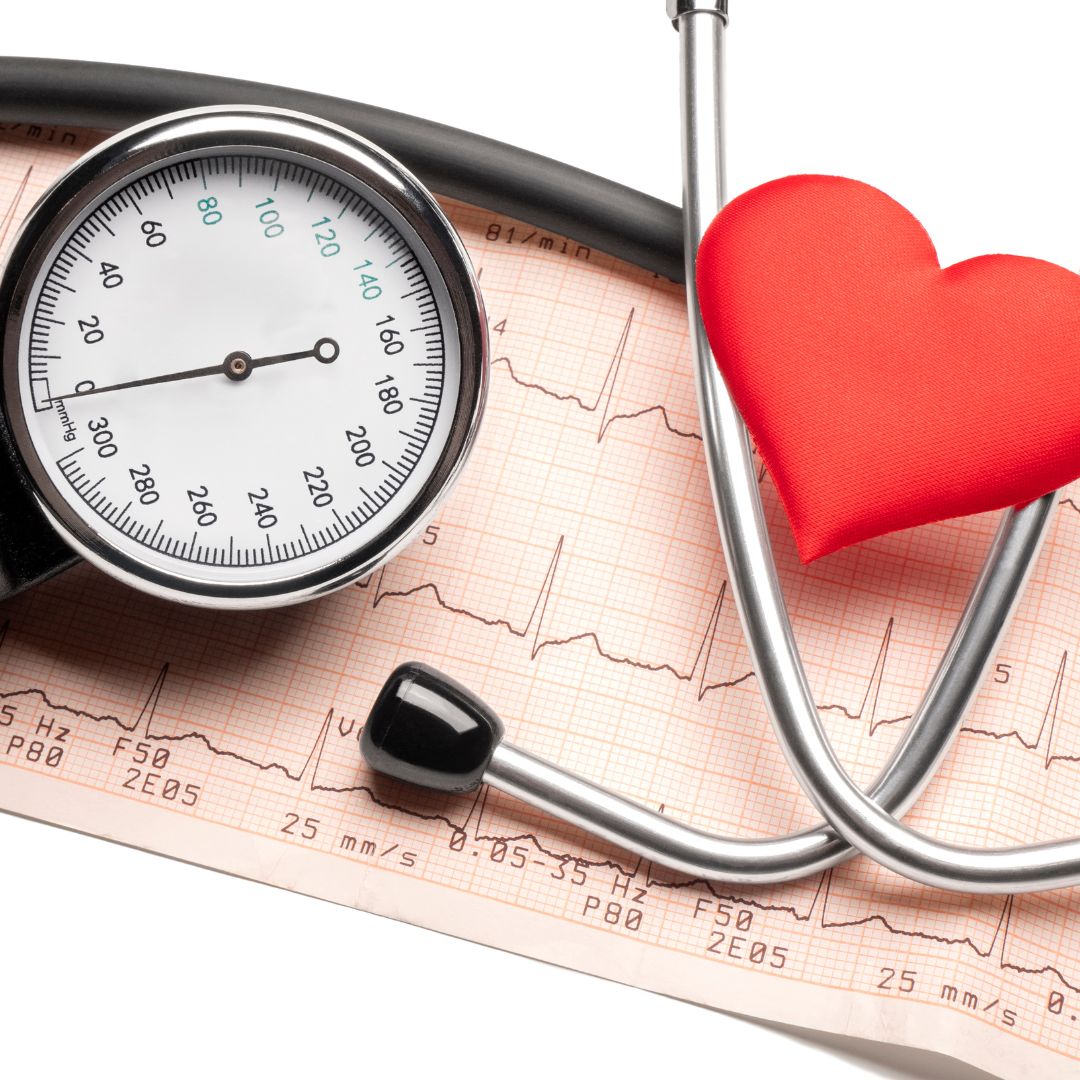
How does a nutritionist tackle Christmas?
Christmas doesn’t have to be a dance between deprivation and over-indulgence. It’s a question of balance. It’s a question of figuring what matters most. What are the must-haves and must-dos this year, and what are the might-as-wells (even though you’re not that fussed)?
Plus, there are several things going on when it comes to food and drink. Your fear of ‘missing out’ on that delicious dessert is the first. But also refusing food is mired in emotional meaning both for you and for the host.
As a Registered Nutritionist, I help my clients tackle this tricky period. And here are my top 10 fundamentals for enjoying the festive season – but not regretting it in January:
Set a maintenance goal instead. This is more realistic and much more achievable. This will give you the freedom to enjoy yourself without the feelings of deprivation or the pressure to rebel...
Low carb is not the same as ‘diet food’. Hosts will love you contributing, and no one need know you are also taking care of your health.
However, make sure you don’t forget about yourself and still take the time to plan your food. That way, you will still have the right choices in the house, and it will be much easier for you to succeed. If you have a specific health goal, it is a shame to fail just because you don't have the right foods to hand. This is so easy to avoid just by giving it a few minutes’ thought and preparation.
If you do, if will be harder to make healthy choices.
Avoid creamy or sweet drinks. Try to drink with food as this will reduce the impact of alcohol (and sugar) on your blood stream.
If your usual classes aren’t running, choose other options instead e.g. brisk walks with friends and family.
If you do happen to overindulge, enjoy whatever you are indulging in and get back on track afterwards.
This will encourage you not to overeat and will also improve how you feel the next day.
Particularly fast-release carbohydrates like starchy carbs and sugar.

Low Carb Christmas Cake
This cake was devised for Christmas cake lovers who don't want to upset their energy balance - traditional cake is very heavy on dried fruit.
Note that because the cake has a low sugar and alcohol content, it will not keep for more than a week but can be frozen.
Ingredients
Method:

How to beat the festive bloat
We’re all prone to a little indulgence at Christmas, but rich food and overeating can play havoc with your digestion, leaving you bloated and uncomfortable. It’s not surprising - we consume on average 6,000 calories on Christmas Day alone! That’s nearly three times the recommended daily intake for women!
There are a variety of reasons why the holidays create more tummy troubles than the rest of the year:
USE YOUR SENSES
The first step in the digestive process is often overlooked, but it’s a critical one. Known as the cephalic phase, it’s triggered when you see or smell food. You are literally whetting your appetite.
When you start thinking about the lovely meal you are going to prepare, you are getting your digestive juices flowing. The enzymes in your saliva help you break down your food more easily. So, when the time comes, your body is ready to start digesting food before you have even cut the first slice – never mind actually put anything in your mouth.
It may sound like an incredibly simple step – and it is – but these days we are often so busy that we don’t make the time to think about our food in this way. If you find you’re always eating on the go, throwing a sandwich down your neck at your desk or having a TV dinner, this is a vital step you are missing out on. One trick is to be mindful and try and spend a few minutes thinking about your tasty lunch before you eat it to get the digestive juices going.
CHEW YOUR FOOD
Remember what Mum used to say? Chewing your food (the second phase of digestion) is key when it comes to good gut health. With proper chewing, you are mechanically breaking down the food into smaller pieces so that there’s a greater surface area and the digestive enzymes can get to work more easily, doing their job.
If you’re not chewing properly, it’s highly likely that you’re not digesting your food very well. And that means you won’t be absorbing the vital nutrients either. Not chewing also means that the food you eat takes much longer to break down, and, as it hangs around in your digestive system, it can start to ferment, causing uncomfortable wind, gas and bloating.
Don’t worry about chewing a certain number of times – that all depends on what you are eating and various other factors.
Instead, try this test: chew your food enough so that if someone asked you to spit it out, they wouldn’t be able to identify what it was. Another sign you need to chew more is if you start to see undigested food in your stools.
BALANCE YOUR STOMACH ACID
Sales for heartburn tablets are skyrocketing, because so many people wrongly assume that their digestive troubles are due to too much stomach acid. What nutritionists like me find more frequently in clinic is the total opposite! Getting older, stress and some over-the-counter medications can make your stomach acid levels drop to the extent that you don’t produce enough to digest food sufficiently.
Why is this important? The stomach acid you produce not only kills any bacteria in the food you are eating, it also breaks down the protein in your meal. If you’re not fully digesting the protein element in food, it can start to putrefy, creating gases that force open the oesophageal sphincter muscle (a type of ring muscle) and what little stomach acid there is can escape. So, the burning feeling, especially if accompanied by smelly gas, can be a sign your digestion isn’t working as well as it should be.
One solution is to have a teaspoon of apple cider vinegar before each main meal. It’s important you choose apple cider vinegar with the ‘mother’, rather than one you can buy in the supermarket (that’s for your chips).
Some people genuinely produce too much stomach acid and, if you try the apple cider vinegar trick and it seems to make things worse, you can neutralise the acid by taking a little bicarbonate of soda, stirred into water.
PLAN WHEN YOU WON’T EAT
As well as WHAT to eat, one of the things I find myself talking a lot about in clinic is NOT eating. It’s never truer than at this time of year.
It’s important to space out your meals, so the digestive system actually gets a chance to rest. This might require some self-discipline if your house is routinely full of bowls of nuts or towers of chocolate boxes.
Eating no more than every 4 hours is a good benchmark to aim for, and it gives the body enough time to completely digest the previous meal and have a break before you put it to work again. Of course, there will be days when your eating routine falls out of whack, but don’t beat yourself up. Just get back on track the following day.
And if any of your symptoms are really bugging you, or lasting longer than expected, why not get in touch?

Bring the Hygge
There’s so much to love about the journey into winter. If you’re in the Northern Hemisphere, cold lashing rain might be the reality, but there are so many ways you can spin the next few months so they feel like a delight for the senses rather than a drain on your reserves. How? We need to take our lead from the Scandinavians, who have the joys of this entire season rolled into one gorgeous concept Hygge.
Hygge is the concept that might just help you feel a little calmer and more content as the nights get longer. And right now is the perfect time to slow down and focus on a little self-care.
What is Hygge?
Hygge (pronounced “hoo-gah”) is a Danish word that’s all about creating a warm, cosy atmosphere. Think soft lighting, comfy clothes, and a feeling of contentment as you relax with a cup of tea in hand. It’s all about slowing down and enjoying the simple pleasures in life.
Now is the perfect time to open the door to a little hygge - as the colder months and the hustle and bustle of the holiday season approach, it’s easy for stress to creep in. Hygge offers you a way to manage that stress by creating little pockets of calm and comfort in your day-to-day life. It’s the perfect antidote to a busy, stressful winter. And what’s not to like curling up in front of a roaring fire - or under a heated blanket - with your latest novel?
So, how can you bring more hygge into your life this season? Hygge doesn’t have to be complicated. In fact, much of its beauty lies in the simplicity of it.
Here are 10 simple ways to introduce hygge into your life this winter
1.Cosy space.
Add some soft lighting, blankets, and pillows to your living room or bedroom. It doesn’t take much, but it can completely change the feel of a space.
2. Warming drinks.
There’s something incredibly comforting about holding a warm mug in your hands. Herbal teas, a healthy hot chocolate, or even a simple cup of warm milk, are perfect for chilly evenings.
3. Candles everywhere.
Lighting a candle in the evening can create a lovely, relaxing atmosphere. The soft, flickering light works wonders for calming the mind. A good quality scented one might be a real feast for the senses. If you’re not a fan of a naked flame, you’ll find an array of gorgeous winter scents made for essential oil diffusers.
4. Comfort food.
It’s that time of year when hearty soups, slow-cooked stews, or a warm bowl of porridge is on the menu. Simple, nourishing meals are the ultimate in comfort and are perfect for the colder months. Comfort doesn’t have to mean unhealthy – check out my recipe section for ideas.
5. Digital detox.
Try switching off from screens for an hour or two in the evening. Without the constant buzz of notifications, you’ll be able to unwind and relax much more easily. It can feel like a hard habit to break if you’re the kind of person who struggles to watch the TV without also scrolling - but your mind will feel less cluttered when you take the plunge.
6. Snuggle up with a book.
There’s something beautifully hygge about curling up with a good book. It’s a simple pleasure that can bring a lot of joy.
7. Connect with loved ones.
Hygge is all about togetherness, so make time to catch up with friends or family. Whether it’s in person or over a video call, those connections are so important for your wellbeing.
8. Mindful moments.
Hygge encourages us to be present and appreciate the little things. For you, that might mean savouring a cup of tea or watching the rain outside, take a few moments each day to just *be*.
9. Woolly socks and comfy clothes.
There’s nothing better than changing into something cosy at the end of the day. Consider this your sign to yourself to some soft, cashmere socks or a warm jumper.
10. Winter walks.
Although it might well be freezing outside, there’s no such thing as bad weather, only unsuitable clothing… So, wrap up in your favourite coat and head out for a stroll. Even on the coldest days, there’s something refreshing about being out in nature.
So, there you have it, and I hope you’re convinced. If you want a stress-free winter and to go ‘all in’ on the season, add hygge to the top of your to-to list. I encourage you to try out one or two of these ideas and see how they help you feel more grounded and less stressed.
Remember, it’s okay to slow down and take time for yourself, especially as the holidays approach. Hygge is a reminder that self-care isn’t selfish—it’s necessary.

How’s your blood pressure?
Is your blood pressure under 120/80mmHg? If you don’t know your numbers, here’s why it really matters.
When you know your numbers, you are then able to take steps to get yours back in control if you need to.
What is blood pressure?
Blood pressure is the force, or pressure, that blood exerts on the walls of the blood vessels. This pressure ensures a steady flow of blood into, and out of, all the organs of the body.
Keeping blood pressure within normal limits is vital.
If it is too high (hypertension), blood vessels can be damaged, causing clots, and rupture, resulting in a heart attack or stroke. If it is too low (hypotension), blood flow to the tissues may be inadequate, which is potentially very dangerous – especially if this were to affect the brain, kidneys or heart.
How do I know I have blood pressure problems?
High or low blood pressure does not always cause symptoms.
Pubescent girls, young, slim women, pregnant women and gaunt, older people are most frequently affected by low blood pressure. It can be a result of dehydration, which is particularly common in older people.
If you experience symptoms of low blood pressure (see below), and they occur frequently or very suddenly, you should get the cause clarified by your doctor.
High blood pressure or hypertension, which is more common than low blood pressure, not only affects older people. Young adults and even children can also suffer from it. What is particularly worrying is that many people affected do not know they are ill.
What causes high blood pressure?
There are many causes of hypertension. In most cases, an unhealthy diet and lifestyle are major contributory factors.
The risk of developing high blood pressure increases with age. Over the years, the blood vessels lose their elasticity and become stiffer. Often, only the upper blood pressure value (systolic pressure) is elevated in older people - this is also considered high blood pressure, which is usually treated with medication.
These days, more and more children also develop high blood pressure. In children, the main causes are being overweight and too little exercise. Maintaining a normal weight and doing daily physical activity are the best ways to protect children from high blood pressure and its consequences.
In adulthood, it affects men more often than women. About one in five men between the ages of 40 and 49 has high blood pressure. From the age of 60 onwards, women catch up. This is usually caused by the menopause, when levels of the hormone that lowers blood pressure, oestrogen, begin to fall. Women can also develop high blood pressure during pregnancy or by taking the contraceptive pill.
In rare cases, high blood pressure is the result of another disease. This is usually a kidney disease, hormone disorder or vascular disease. If this other condition can be treated successfully, blood pressure usually returns to normal.
What are the symptoms of low blood pressure?
What are the symptoms of high blood pressure?
Most people show hardly any clear symptoms of high blood pressure, so it often goes unnoticed for a long time. That’s why it’s often referred to as a ‘silent disease’. It is, therefore, important to take possible signs of high blood pressure seriously and see a doctor as soon as possible:
How can a nutrition practitioner help?
The most common underlying reason for blood pressure problems are poor diet and lifestyle choices. Even small changes to your habits and what you eat can make a big difference in a relatively short period of time.
I will ask questions about your overall health and health history, diet, lifestyle and exercise habits. I will look at your food diary to see where there may be room for improvement. I will then develop a customised diet, supplement and lifestyle plan for you. Are you interested to know more? Why not book in a free call.

Lamb and Spinach Curry
This one takes a while to cook due to the cut of meat, but it is well worth it for that Saturday night curry.
Alternatively cook on a Sunday, whilst prepping your breakfasts and lunches for the week.
Serves 4
Ingredients:
1 red onion
4 garlic cloves
600g lamb shoulder
2 tbsp coconut or oliveoil
1tsp cayenne
3tsp ground coriander
3tsp ground cumin
1tsp turmeric
1/2tsp ground cinnamon
2 cardamom pods
2 tins chopped tomatoes
1 tin coconut milk
200g fresh spinach
200g frozen peas
1 lemon
Seasoning to taste
Method:
1. Finely slice the onion, crush and finely chop the garlic and on a separate board, cut the lamb into cubes
2. Heat the oil in a large saucepan on a medium heat and cook the onion for 4-5 mins until browned. Then add the garlic, cayenne, coriander, cumin, turmeric, cinnamon and cardamom and a couple twists of black pepper. Add 4 tbsp of water and fry for a few mins until fragrant.
3. Add the lamb to the saucepan with a big pinch of salt and brown for 3-4 mins, adding water if it gets dry to prevent the spices from burning.
4. Add the tomatoes and bring the curry to a simmer. Cook for 45 mins, stirring every 15 mins.
5. Add the coconut milk, stir well and cook for a further 45 mins, again stirring every 15 mins.
6. Add the spinach and the peas and stir again until the spinach wilts.
7. Take the pan off the heat and stir in the lemon juice. Serve with cauliflower rice or a side of steamed vegetables.
8. Enjoy!
![]()
Please get in touch and find out more - I offer a free 30-minute exploratory call.